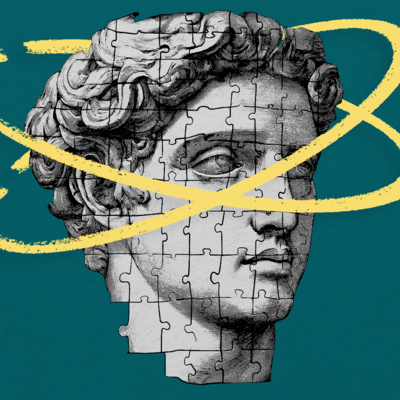
Today’s big news, other than the Cloudflare outage (which one Every team member referred to as an “adult snow day”), is that Google’s latest version of its Gemini model, Gemini 3 Pro, is out. We’re testing it and will be publishing a Vibe Check shortly. Until then, Danny Aziz, general manager of Spiral, wrote about how AI coding tools changed his identity as a software engineer.—Kate Lee
Was this newsletter forwarded to you? Sign up to get it in your inbox.
For years, I told people I was a software engineer. It was what paid my bills and what defined me. My technical skills proved I had earned the right to belong to a certain world.
AI shattered that identity. Sometime in March 2025, the technical work that had defined me was suddenly being done by AI tools like Cursor and Claude Code without much need for my input. AI was solving the technical problems I used to solve by hand faster and better.
My initial response was fear. I’d always felt secure knowing I could get a job anywhere if things went wrong. Now AI could do the thing I got paid well to do. What was I worth? And who was I?
For the first time in my career, I had an unexpected gift: time. I finally had a chance to discover who I really was in a world where AI can write code as well as me—a shift that I know millions of other software developers are grappling with.
Choosing to go deeper
I saw two paths forward.
The first was coasting. I saw it on X—people letting agents do work while they made coffee or watched Netflix.
Then I noticed it in myself. I'd start an AI agent on a task and reflexively reach for my phone to scroll X or check messages. All the practices I'd spent years building to get into a flow state and achieve maximum concentration—optimal break timing, deep focus sessions—went out the window. The path of least resistance was distraction, and it was easy to rationalize when I was still getting the same amount of work done.
The second path was going deeper into my fear instead of basking in the free time AI had opened up for me. I could lean into the fear I felt—that AI could do what I got paid for, this skill I'd taught myself at the age of 15 and spent a decade mastering professionally working on consumer, cryptocurrency, and marketplace apps with engineering teams across Europe and the U.S. What if I used this freed-up time not to maintain the same output with less effort, but to expand into areas I'd always been curious about but never had time for?
I chose the second path. It felt like the best long-term decision. Instead of succumbing to the fear of AI stealing my job, I needed to sit with that fear and see what happened.
But it was not the easy choice because it required that I actively resist laziness. I started putting my phone face-down on a windowsill when I entered the office. During the gaps while agents worked, I consciously chose to examine myself instead of scroll.
Where the craft went
I didn't immediately know what "going deeper" looked like. I'd stare at Spiral, Every’s AI writing tool that I manage and was in the process of rebuilding. I have always kept a journal of my daily life on my laptop, but I started writing down questions and trying to answer them: What else could I be doing during agent wait times? What am I drawn to that I never had space for?
The responses that I recorded kept pointing to similar themes: how users experienced a product and what emotions a product elicited in them. I hadn’t had time to explore these areas in earnest because I had been too busy writing code.
A few weeks into this journaling practice, I noticed something had shifted. When I thought about my work, I wasn't framing problems as a software engineer anymore. Instead of thinking only about how data moves from one part of the application to the other, I was thinking like a product maker—someone who cares about how things feel in people's hands and whether the experience serves the user.
While building Spiral, I asked myself questions such as: “How do I feel after looking at this feature?” “What were my expectations when I first looked at it?” “What was the first thing that came to mind?” “What am I expecting it to do when I click this button or move through this step?”
The Only Subscription
You Need to
Stay at the
Edge of AI
The essential toolkit for those shaping the future
"This might be the best value you
can get from an AI subscription."
- Jay S.
Join 100,000+ leaders, builders, and innovators

Email address
Already have an account? Sign in
What is included in a subscription?
Daily insights from AI pioneers + early access to powerful AI tools






.png)

.12.16_PM.png)
Comments
Don't have an account? Sign up!